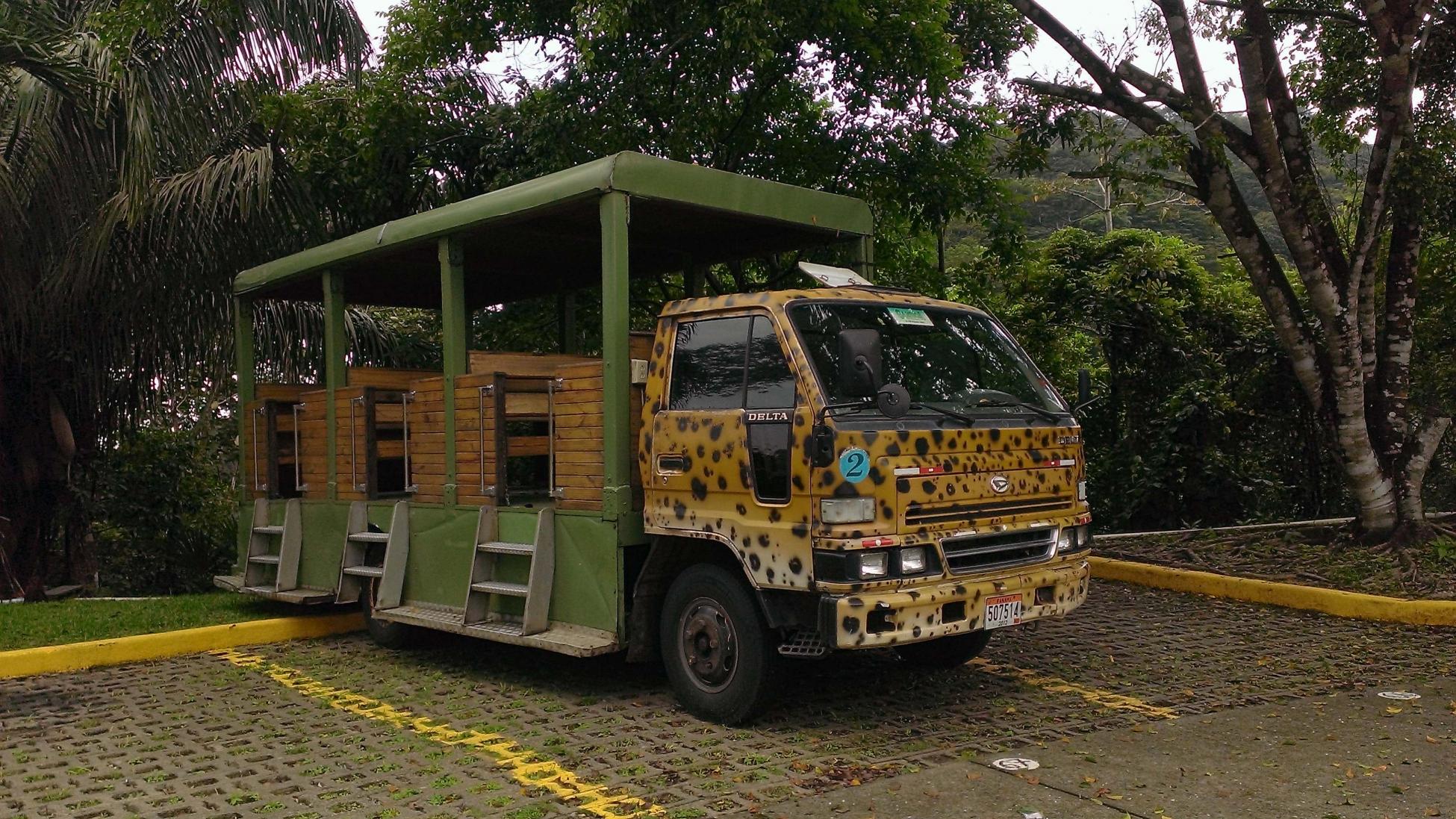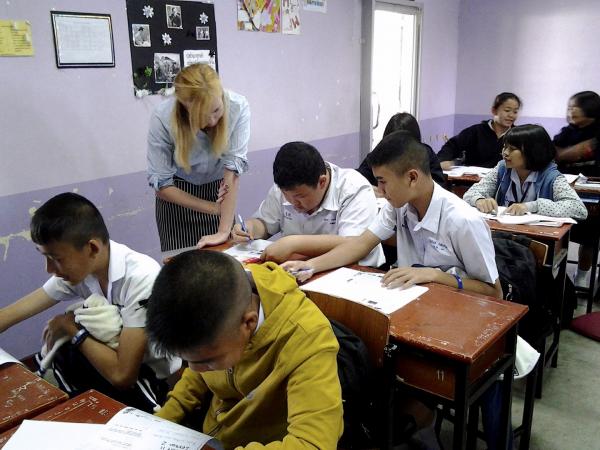Five minutes before, we had been Facebooking and emailing in the hotel lobby, but now we climbed into the back of the truck with a jaguar-spot-painted cabin, unaware of where we would be taken and what we would find there. In the open-aired rows of bench seating, we got as comfortable as we could and became attentive to the gleeful tour guide welcoming us on the safari as we pulled out of the resort parking lot.
The driver moved along at a steady clip as the guide searched the surrounding ground and trees with his handheld spotlight until he loudly announced a specimen of interest. The driver would brake so the guide could begin his well-rehearsed, thick-accented, crowd-pleasing spiel.
“See the red glowing lights,” instructed our guide as we paused by a pond and he scanned his spotlight across the landscape. “Those are caiman eyes.” By a sewer drain down the road, he continued; “Look down by the water! Right next to us is a sleeping caiman.” Everyone leaned over to the right side of the bus to snap a picture. The crocodilian soon slid off the cement embankment and bid us farewell with its tail, stroking back and forth, barely breaking the surface.
“Oh, we woke it up,” a friend commented.
We disturbed it, I realized. Should we have?
Before leaving for Panama, I read “Land of Ghosts,” by David G. Campbell, a memoir of the author’s experiences working as a scientist and interacting with local people throughout the Amazon. One section in particular stood out to me, even as I was reading at home, and it came to my head again during the safari:
“It is impossible to walk through this place where life covers ever square centimeter without disturbing that life. The very act of measurement changes the experiment. The team tramples the understory, bends saplings, squishes footsteps into the soil, denying the patient recruits their place in the sun. . .the scars of our research mark every one of our beloved trees. To know them we must injure them.”
We were on the safari to enjoy ourselves and to see the wildlife unique to this area, but to do so we were trespassing, however lightly, on the longtime homes of the animals of Gamboa.
The main purpose of our presence in Panama as part of the Research Experience for Undergraduate program (REU), as the name suggests, is to help with and to learn how to carry out scientific research, like that which Campbell discusses. The project I am working on aims to find a stronger relationship between herbivorous insects and their effect on saplings. It involves picking beetles, katydids and caterpillars off particular leaves, so the insects can be frozen at -60°C and subsequently pulverized to determine the barcode of what they were in the process of eating.
My roommate, Tawni, is a part of a project studying the effects of sleep deprivation on bats, during which they must capture and annoy bats to force them to stay awake. The particular individuals involved in these studies will not reap the positive benefits obtained from the studies, but is the project really for the greater good? What is the greater good?
I am a newcomer to this field of study so these answers are not quite clear to me. I hope that the intentions are soon clarified. I hope that I am contributing to a worthy endeavor, but Campbell’s words will force me to continue to think critically as I gather context on the various projects at the Smithsonian Tropical Research Institute (STRI).
Add this article to your reading list




